
Krishna starts off the Gita by asking Arjuna not to grieve – “Don’t cry for either the living or the dead” (BG 2.11). And he ends his message by asking Arjuna not to grieve – “Just have faith in me. I will grant you the ultimate state. Don’t cry” (BG 18.66). In between these two persuasions of “Don’t cry,” he teaches the Gita. But what of Krishna’s life? Has he ever cried? While all the great warriors of the Mahabharata have shed tears at...
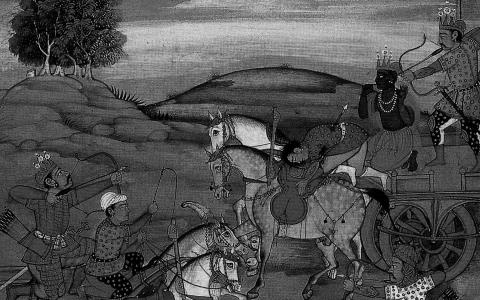
In chapter 13 of the Gita (verses 7 to 11) Krishna gives the various parameters that constitute true knowledge:
अमानित्वमदम्भित्वं अहिंसा क्षान्तिरार्जवम् |
आचार्योपासनं शौचं स्थैर्यमात्मविनिग्रहः |७|
इन्द्रियार्थेषु वैराग्यं अनहङ्कार एव च |
जन्ममृत्युजराव्याधि दुःखदोषानुदर्शनम् |८|
असक्तिरनभिष्वङ्गः पुत्रदारगृहादिषु |
नित्यं च समचित्तत्वं इष्टानिष्टोपपत्तिषु |९|
मयि चानन्ययोगेन भक्तिरव्यभिचा...
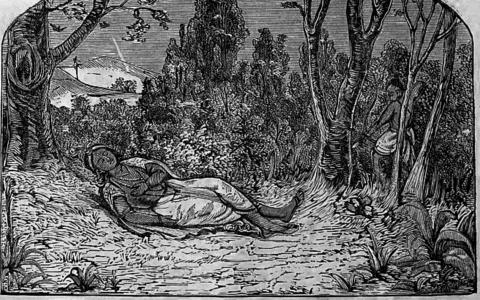
An important concept that Krishna speaks about in the Gita is that of being a स्थितप्रज्ञ – a balanced person with steady intellect. He says, “One who abandons selfish desires and is satisfied within the true self is a sthitaprajna (BG 2.55). In other words, he is telling Arjuna to let go of देहाभिमान, the obsession with the body and focusing only on the material aspect of living.
Krishna has been a sthitaprajna all his life. He has...
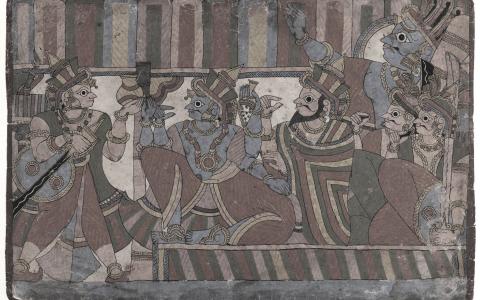
Krishna had the qualities of a good statesman – be it eloquence, integrity, intelligence, wit, or the ability to take quick decisions. One can imagine he was a soft-spoken person. He spoke words that were at once pleasant and honest (see BG 17.15). While his words were practical, they were never devious. He never forgot a promise, he never broke a promise. And yet, for the sake of dharma, he was willing to abandon a hundred promises....

The agnishomiya vyuha – the Agni-Soma formation – is the cosmic structure, the eternal arrangement. It is the eternal establishment that binds the consumer and the consumed. This concept has been discussed in the Upanishads and the Yogavasishtha. Krishna speaks about this in the Gita when he identifies himself with the sun, the moon, fire, energy, sap, thought, etc. (BG 15.12-15).
While agni represents the consumer, soma represents the consumed...
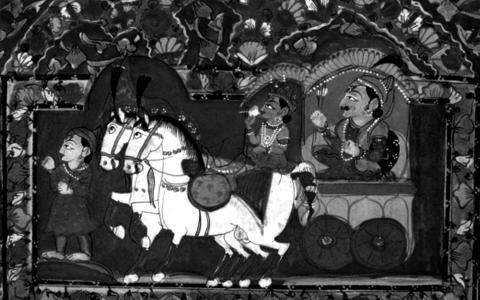
While Krishna praises the trait of detachment and contentment, he emphasizes the need for hard work. At the risk of sounding paradoxical, he says in the Gita – I’ve achieved everything, yet I continue to work (BG 3.22); If I fail to work tirelessly, humans will blindly follow my example and sit idle (BG 3.23); If I didn’t work, the worlds would perish and I would become the cause of chaos (BG 3.24).
Why does he say this? Krishna ...

In the Bhagavata Purana, there is the moving episode of Kuchela’s visit to Krishna’s palace. Kuchela and Krishna were classmates in the gurukula of Sandipani. Kuchela leads an impoverished life while Krishna is a king. Kuchela visits his old friend with a view to ask him for help but when he actually meets him, he is unable to bring himself to ask for a favor.
Krishna gives so much to Kuchela without expecting anything in return. He feels that...

Krishna speaks about bhakti so often in the Gita. He goes as far as to say – sincerely worship the supreme in any form you like; I will strengthen that faith (BG 7.21). But what of Krishna himself? Is he a devotee? Or is he an arrogant god?
He is devoted to his parents, elders, teachers, and seers. For example, during the rajasuya yajna performed by Yudhisthira, Krishna washes the feet of all the sages (MB 2.30-32) – he is endowed with true...
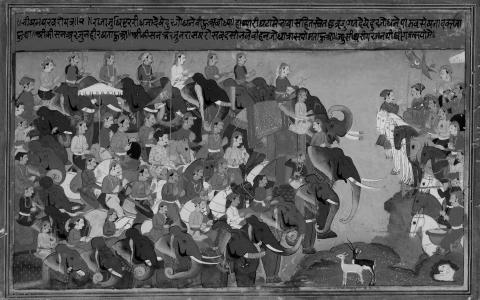
The basic idea of the Gita was to convince Arjuna to fight the war and kill his enemies. Krishna tells Arjuna without mincing any words that he has to face his enemies and march ahead. And in the course of this persuasion, he uses various lines of argument (see for example, BG 2.31-33, 11.34). But this is not an empty exhortation. Krishna himself has killed others. He has killed his own people too. He killed his own maternal uncle...

Krishna gives a wonderful formula for peace in the Gita. He says that when a person overcomes desires, lives without craving, and is rid of ego and a sense of ownership, he attains peace (BG 2.71). But this is precisely what Krishna has done in his own life in order to attain peace.
He lived a life devoid of personal attainments, desires, or cravings. He never sought any material things nor did he chase power, position, or fame. He never fought...
